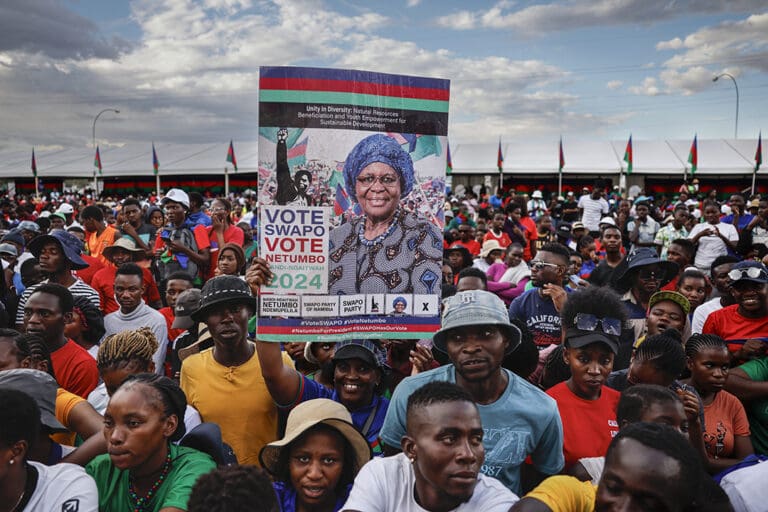Namibians went to the polls on Wednesday to elect a new president and members of the country’s 8th National Assembly in a pivotal election for the ruling SWAPO party, which has governed since gaining independence from apartheid South Africa in 1990.
Polling stations opened at 7am local time (0500 GMT) and were scheduled to close at 9pm the same day.
The SWAPO party, whose presidential candidate is Vice President Netumbo Nandi-Ndaitwah, is aiming to extend its 34-year rule amidst growing challenges from the Independent Patriots for Change (IPC), a party that emerged after the 2019 elections.
If Nandi-Ndaitwah wins, she will make history as Namibia’s first female president, a milestone that could shift the gender dynamics in the country’s leadership.
The elections feature 21 political parties, with 15 fielding presidential candidates.
Namibia employs a majority voting system for presidential elections, requiring candidates to secure over 50 percent of the votes to win.
The parliamentary elections use a proportional representation system, ensuring that the number of seats allocated to each party corresponds to their share of the national vote.
The National Assembly consists of 104 seats, with 96 elected and eight appointed by the president.
The main contenders for the presidency are Nandi-Ndaitwah and Panduleni Itula of the IPC.
Itula, who gained significant attention in the last presidential election by securing 29 percent of the votes, is optimistic about his chances after the recent passing of former President Hage Geingob.
Other notable candidates include McHenry Venaani, leader of the Popular Democratic Movement, and Bernadus Swartbooi of the Landless People’s Movement, which advocates for land redistribution.
The 2019 elections marked a decline in SWAPO’s electoral dominance, with the party’s presidential vote share dropping from 87 percent in 2014 to just 56 percent.
JN/APA


